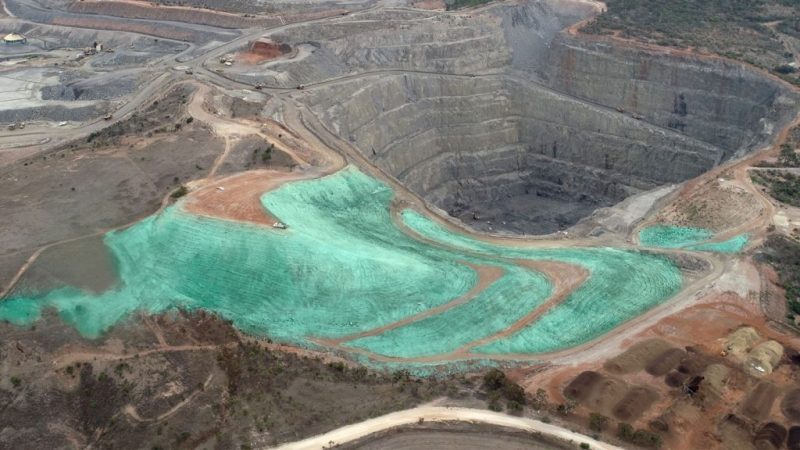In today’s business landscape, embedding environmental, social and governance (ESG) goals into corporate strategy is becoming increasingly imperative. Not only do these efforts highlight a company’s commitment to sustainable practices and ethical operations, but they also significantly contribute to long-term value creation for all stakeholders.
Recognising the importance of ESG criteria can guide companies in mitigating risks, attracting investment and fostering innovation. In the following sections, we’ll explore effective ways to set ESG goals, understand the underlying principles and benefits and tackle common challenges to achieve these objectives successfully.
ESG: A Brief Overview
ESG is a set of non-financial metrics that measure the performance and impact of an organization’s operations on the environment, society and governance. These factors are increasingly being considered by investors as key indicators of a company’s sustainability and long-term success. ESG goals encompass a wide range of environmental, social and governance issues such as climate change, employee well-being, diversity and inclusion, and business ethics.
Why Are ESG Goals Important for Australian Industries?
Understanding the significance of ESG goals is crucial not only from a global perspective but also within specific industries. Each sector faces unique challenges and opportunities when it comes to integrating ESG principles into its operations. Here are a few industries in Australia where ESG goals hold particular importance:
- Mining and resources: ESG goals contribute to environmental conservation by reducing the impact of resource extraction and encouraging sustainable practices.
- Civil and infrastructure: Setting ESG goals can ensure responsible practices in reducing carbon footprint, promoting diversity and inclusion and protecting local communities.
- Government: Government agencies can use ESG goals to improve governance and transparency, promote social equality and reduce environmental impact.
- Energy and resources: In the face of climate change and growing concerns over energy security, ESG goals can help drive sustainable energy production and usage.
- Defence: ESG goals can ensure ethical procurement and responsible use of resources and promote diversity and inclusion in the defence sector.
How ESG Impacts Employees and the Community
The implementation of ESG goals within a company not only benefits the environment and ensures ethical governance but it also profoundly impacts both the workforce and the broader community. A key aspect of this is the enhancement of workplace culture through initiatives that prioritise health and safety, diversity, equity and inclusion. By creating a safe and supportive work environment, companies can significantly improve employee satisfaction, engagement and retention. This is crucial in today’s competitive job market where talent retention is often as important as talent acquisition.
Furthermore, ESG goals focused on social aspects help to foster stronger relationships with the communities in which companies operate. Initiatives such as community engagement programs, supporting local economies and investing in sustainable infrastructure contribute to a positive societal impact. In turn, these actions can enhance a company’s reputation and brand value, creating a virtuous cycle that benefits both the business and the community at large.
Investing in the well-being of employees and the community not only aligns with ethical business practices but also generates tangible benefits by attracting socially conscious investors, improving stakeholder relations and ultimately contributing to long-term business success.
Environmental Risks That Warrant ESG Goal Implementation
Environmental, social and governance goals can play a significant role in addressing and mitigating various environmental challenges. Here are some of the key environmental risks and how ESG goals can help tackle them:
- Soil erosion: Soil erosion is a serious environmental concern that can lead to loss of fertility and degradation of land. Industries like mining and agriculture can set ESG goals to help prevent soil erosion by implementing sustainable land management practices, such as crop rotation and erosion control measures
- Airborne dust: Airborne dust can have harmful effects on air quality, human health and climate. Industries such as construction and manufacturing can set ESG goals to control dust emissions. This can be achieved by implementing dust suppression techniques and using equipment designed to minimise dust production.
- Land degradation: Land degradation can lead to a decrease in land productivity. To combat this, industries can set ESG goals to promote sustainable land management practices. For instance, they can commit to reforestation projects or implement sustainable agricultural practices that maintain soil health and prevent degradation.
- Drought and desertification: Drought and desertification pose significant threats to water security and biodiversity. Industries, particularly those reliant on large amounts of water, can set ESG goals to conserve water and combat desertification. This could involve investing in water-efficient technologies or supporting initiatives that combat desertification.
Desert sands typically store significantly less carbon due to the lack of vegetation. The absence of plant life results in fewer opportunities for carbon sequestration through photosynthesis, leading to less overall carbon storage compared to vegetated lands. Therefore, industries can set ESG goals to support reforestation and revegetation projects, which increase carbon sequestration and help mitigate climate change.
How to Integrate ESG for Business Advantages
Integrating ESG into your business strategy can offer numerous advantages, from enhancing your reputation to attracting investment. Here’s how you can effectively set ESG goals for your business:
Identify Areas of Sustainability
The first step towards setting ESG goals is to identify areas of sustainability within your business. This involves conducting an audit of your current practices and identifying where improvements can be made. For instance, if your company uses a significant amount of energy, you might focus on reducing your carbon footprint by implementing energy-saving measures.
Set SMART Goals
SMART stands for specific, measurable, achievable, relevant and time-bound. Here’s what each element entails:
- Specific: Your ESG goals should clearly define what needs to be done and how to do it. For example, instead of saying “reduce energy consumption,” a specific goal could be “reduce energy consumption by 20% in the next two years by installing energy-efficient lighting.”
- Measurable: Your goals should include measurable and trackable benchmarks. This allows you to monitor progress and make adjustments as necessary. In the above example, the 20% reduction is a measurable metric.
- Achievable: Ensure that your ESG goals are achievable with the resources available. Setting unattainable goals can lead to frustration and a lack of progress.
- Relevant: Your ESG goals should be relevant and connected to your overall business objectives. If your business aims to be a leader in sustainability, your ESG goals should reflect that ambition.
- Timely: Give your goals a deadline to create a sense of urgency and motivate action. Deadlines also provide a clear timeframe for measuring progress.
Align Objectives with ESG Standards and Initiatives
Aligning your ESG goals with established standards and initiatives can lend credibility to your efforts. There are several global ESG standards, such as the Global Reporting Initiative (GRI), the Sustainability Accounting Standards Board (SASB). Aligning your objectives with these standards ensures that your ESG goals are in line with globally recognised best practices.
Monitor Progress Against Goals
Monitoring progress is a crucial step in achieving your ESG goals. Regular check-ins allow you to assess whether your initiatives are working and make necessary adjustments. For example, if you’ve set a goal to reduce water usage by 15% within a year, regular monitoring could involve monthly checks on your water usage levels. If you’re not on track to meet your goal, you can investigate why and take corrective action.
How Erizon Can Help Achieve a Company’s Sustainability Goals
With cutting-edge technology and a commitment to sustainability.. Erizon specialises in providing solutions that directly tackle the environmental challenges outlined above. Here are a few ways in which Erizon can help your company achieve its sustainability goals:
Dust Suppression
Our products for dust control and soil stabilisation are meticulously designed and tested for effectiveness on various surfaces. They create a durable, water-resistant crust post-application, minimising dust.
Revegetation
Reestablishing robust and sustainable vegetation that enhances current ecosystems stands out as the best approach to fulfil effective environmental remediation. Restoring disrupted vegetation in Australia can counteract the negative effects stemming from clearing and disturbances.
Erosion Control
Our erosion control solutions offer instant erosion control and demonstrate superior resilience to UV rays, chemicals and abrasion. They effectively stabilise steep slopes and boast a notably safer and swifter installation process compared to conventional erosion control blankets.
Mine Rehabilitation
Rehabilitating mine sites isn’t just a legal obligation in Australian mining; it’s a chance for the industry to demonstrate its dedication to sustainable practices. Our expertise lies in cultivating fertile soil that nurtures native plant species during the restoration phase.
Attaining One Goal at a Time With Erizon
Sustainability is a journey, and achieving ESG goals takes time. At Erizon, we understand the importance of taking incremental steps towards sustainability. That’s why our services are designed to help companies achieve their ESG goals one step at a time. Depending on your business needs, you can choose from our range of dust suppression, revegetation, erosion control and mine rehabilitation services. By working with Erizon, you can make tangible progress towards your ESG goals and contribute to a more sustainable future for all.
Learn how Erizon has helped other companies meet their ESG goals. Explore our case studies.








